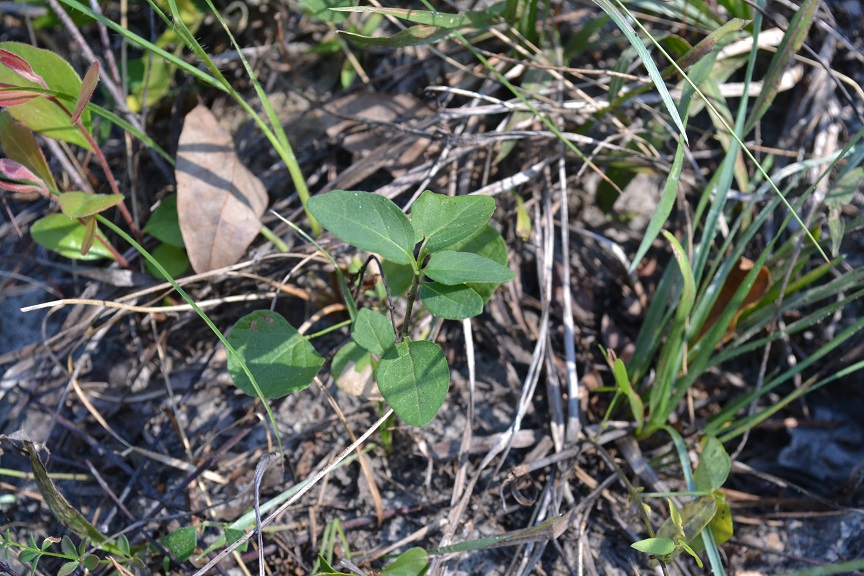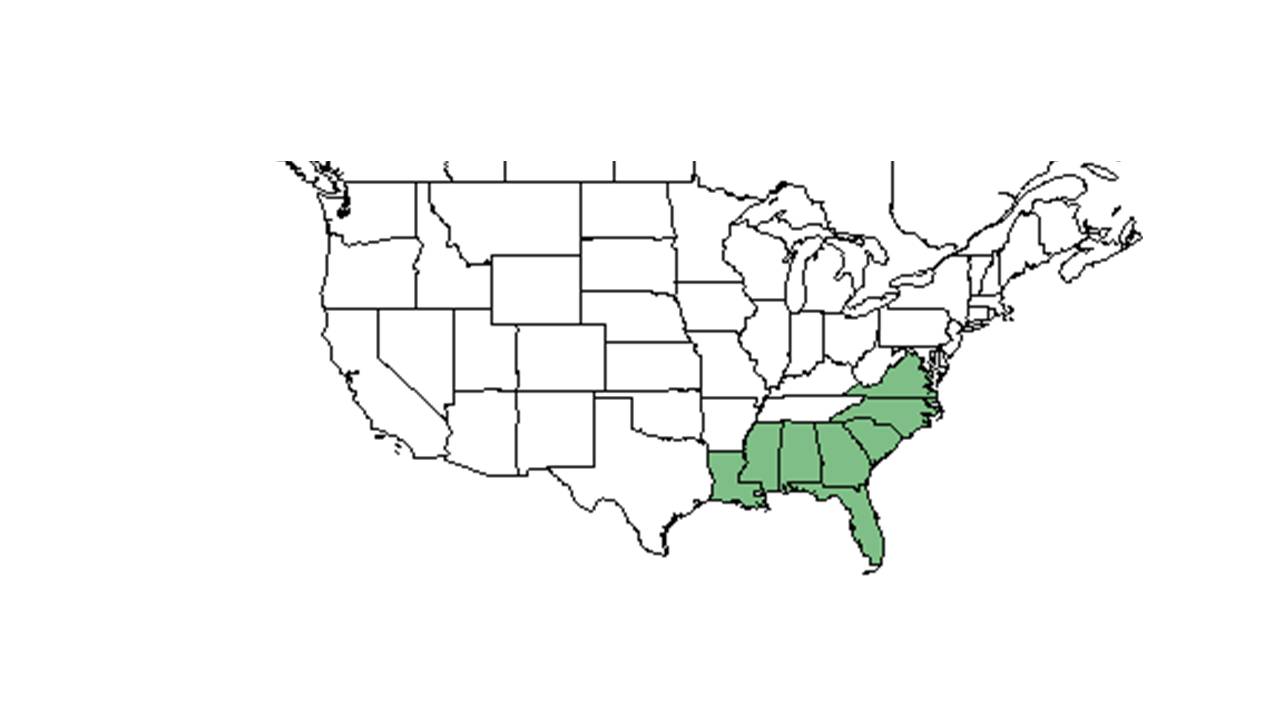Physalis walteri
| Physalis walteri | |
|---|---|

| |
| Photo taken by Kevin Robertson | |
| Scientific classification | |
| Kingdom: | Plantae |
| Division: | Magnoliophyta - Flowering plants |
| Class: | Magnoliopsida – Dicotyledons |
| Order: | Solanales |
| Family: | Solanaceae |
| Genus: | Physalis |
| Species: | P. walteri |
| Binomial name | |
| Physalis walteri Nutt. | |

| |
| Natural range of Physalis walteri from USDA NRCS Plants Database. | |
Common names: Walter's groundcherry; Dune groundcherry
Contents
Taxonomic notes
Synonyms: Physalis maritima M.A. Curtis; P. viscosa Linnaeus ssp. maritima (M.A. Curtis) Waterfall; P. walteri var. walteri; P. walteri var. glabra (Waterfall) D.B. Ward
Description
Distribution
Ecology
Habitat
P. walteri has been observed to be growing naturally on beach dunes and back dunes, in longleaf pine flatwoods, turkey oak sandridges, sandy banks bordering salt marhes,longleaf pine/wiregrass uplands, and slash pine flatwoods. [1] It has been seen in human disturbed areas such as pine plantations, old fields, plowed lots, vacant lots, roadsides near beaches, roadside ditches, pastures and levees, lawns, and clearing of a swamp forest. [1] The soil type associated with P/ walteri includes dry loamy sand, loamy sand, and calcerous soils (such as limerock). [1] Associated species include Tragia smallii, Pinus palustris, Physalis arenicola, Lobelia puberula, Quercus laevis, Sporobolus, Serenoa repens, Yucca, Lyonia, Lantana, Camara, Carex hyalinolepis, Melica mutica, Aristida, Pinus elliottii, and Helianthus debilis. [1]
Phenology
P. walteri is seen flowering in January and from March to November with peak inflorescence in June.[1][2]
Seed dispersal
This species is thought to be dispersed by consumption by vertebrates. [3]
Conservation and management
Cultivation and restoration
Photo Gallery
References and notes
- ↑ 1.0 1.1 1.2 1.3 1.4 Florida State University Robert K. Godfrey Herbarium database. URL: http://herbarium.bio.fsu.edu. Last accessed: July 2015. Collectors: M Y Menzel, R W Menzel, Loran C. Anderson, James R. Burkhalter, Robert K. Godfrey, O. Lakela, William Lindsey, J. B. Nelson, R. H. Wnek, C. Jackson, Robert L. Lazor, Andre F. Clewell, Robert Kral, George R. Cooley, R. J. Eaton, Sidney McDaniel, Cecil R Slaughter, Marc Minno, James D. Ray, Jr., C. E. Wood, C. E. Smith, R. D. Houk, Ann F. Johnson, M. Davis, Richard R. Clinebell II, D. E. Etles, M. S. Etles, William Lindsey, A. H. Curtiss, D. B. Ward, D. Burch. States and Counties: Florida: Brevard, Broward, Calhoun, Citrus, Collier, Dade, Duval, Escambia, Flagler, Franklin, Hernando, Holmes, Jefferson, Leon, Levy, Martin, Monroe, Nassau, Palm Beach, Pinellas, Orange, Santa Rosa, St. Johns, St. Lucie, Seminole, Suwannee, Taylor, Volusia, Wakulla. Georgia: Thomas. Compiled by Tall Timbers Research Station and Land Conservancy.
- ↑ Nelson, G. PanFlora: Plant data for the eastern United States with emphasis on the Southeastern Coastal Plains, Florida, and the Florida Panhandle. www.gilnelson.com/PanFlora/ Accessed: 12 DEC 2016
- ↑ Kirkman, L. Katherine. Unpublished database of seed dispersal mode of plants found in Coastal Plain longleaf pine-grasslands of the Jones Ecological Research Center, Georgia.